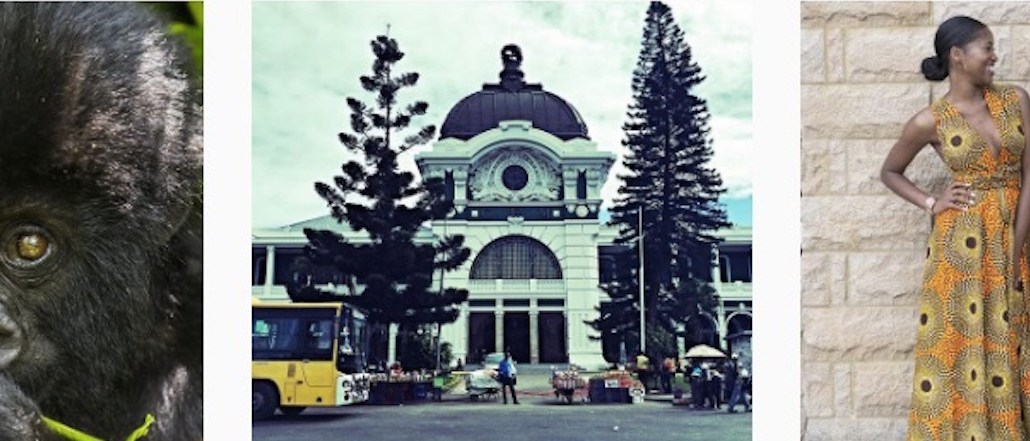Secure your place at the Digiday Media Buying Summit in Nashville, March 2-4
CNN is going after Africa’s young, mobile audience — starting with Nigeria


Nigeria is not only one of Africa’s most populous countries, but it also has one of the youngest populations on the continent. That’s why CNN International is focusing its efforts there, setting up its first digital bureau in Nigeria’s largest city, Lagos.
Leading the operation is Nigerian native Stephanie Busari, who was assigned six weeks ago in the role of supervising producer, Africa. She’ll be driving the editorial mandate for the brand, which will focus on creating content for local audiences and appealing to the entire African continent.
On the social side, CNN has already dropped its three separate Africa Facebook pages — created for three of their TV shows: “Inside Africa,” “African Voices” and “Marketplace Africa” — to create one Africa Facebook page. Within a few weeks, the new page has pulled in 250,000 followers, 10,000 joining in the last week.
Creating one Facebook feed to appeal to all 54 of the countries in Africa may sound counterintuitive, not least of all because there are thousands of different languages spoken across the continent. But Busari doesn’t see this as an obstacle, given most nations speak English either as a first or second language. French is another commonly spoken language, and, in time, Busari wants to expand the content into this language to target French-speaking Africans.
Rather than go too niche on creating content, Busari wants stories to have global resonance. “The stories need to be universal because the larger part of the narrative about Africa tends to be negative, and countries like Nigeria do have their problems, but it has young, dynamic population, and they have the same ambitions and interests as people all around the world,” said Busari.
When 276 Nigerian school girls were abducted from their homes in 2014, the story was picked up globally and sparked the hashtag #bringbackourgirls. In April of this year, Busari and fellow CNN reporter Nima Elbagir obtained a proof-of-life video of the abducted children and broke a story, which showed them revealing the video to the parents for the first time. The story received huge international attention, and they followed the piece with a Facebook Live video, in which they answered questions on the story. The video had 66,000 views and received 2,5000 comments, and was filmed in Nigeria.
Another successful story sourced from CNN Nigeria that garnered global attention featured more uplifting fare. “How YouTube made Julius Yego an Olympic medalist” is about a man who had no formal training but won a silver medal for javelin at the Rio Olympics after teaching himself entirely from YouTube videos.
Busari monitors closely which conversations are most popular on social platforms to inform her editorial strategy. Trending conversations on Twitter, like the one last year around the hashtag: #IfAfricaWasABar, highlight the sense of humor and community Africans have, both sentiments CNN wants to tap into, according to Busari.
Creating short, snappy content for Facebook, Instagram and Twitter is a core focus, especially given people mostly consume media on mobile across Africa. Nearly 70 percent of CNN Digital’s traffic in Africa comes from the mobile web and apps, and 70 percent of all its pageviews there come from mobile, according to Busari. “In the same way the continent skipped fixed lines and broadband, it’s also bypassing desktop,” she said.
Facebook Live will also be a tool Busari develops more from Nigeria. Pokemon Go fever has also gripped Nigeria, so Busari followed a couple of people playing the game around Lagos and streamed it via Facebook Live. It hasn’t promoted the video much, however, as network issues hampered the filming, which could be a barrier to becoming a prolific Facebook Live user.
In time, the plan is to build a network of freelancers, but Busari can also draw on the wider editorial resources of CNN International. This works perfectly for getting images and videos from correspondents and TV producers in the field, exclusively for Instagram.
“We’re fortunate with Instagram, because we have five major prime-time programs that focus on Africa, and they look at arts and culture, business and tech,” she said. “So the strategy is to ask our TV producers, to send images of the amazing things they’re seeing. I took a video in Lagos of the biggest prawns I’ve ever seen at a fish market, and the image got 4,000 views.”
More in Media

From feeds to streets: How mega influencer Haley Baylee is diversifying beyond platform algorithms
Kalil is partnering with LinkNYC to take her social media content into the real world and the streets of NYC.

‘A brand trip’: How the creator economy showed up at this year’s Super Bowl
Super Bowl 2026 had more on-the-ground brand activations and creator participation than ever, showcasing how it’s become a massive IRL moment for the creator economy.

Media Briefing: Turning scraped content into paid assets — Amazon and Microsoft build AI marketplaces
Amazon plans an AI content marketplace to join Microsoft’s efforts and pay publishers — but it relies on AI com stop scraping for free.





